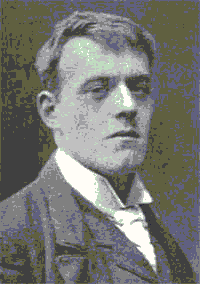Belloc, Hilaire
Belloc, Hilaire
Copyright © 2025 bible.booksAI.org - All rights reserved)

Belloc, Hilaire
This French-born but English-naturalised poet, historian, and essayist was among the most versatile writers in England during the first quarter of the 20th century. While he wrote some delightful comic verses, he is most remembered for the lucidity and grace of his essays, which ranged over travel, literary criticism and some of the key controversies of the Edwardian era, including questions about the means of finding security in religious truth.
Brought to England as a child, Belloc was educated at the Oratory School, Birmingham, and at Balliol College, Oxford, where he read history, and was for a time president of the Union (debating society). He became a naturalized British subject in 1902 and later served as a member of Parliament for Salford (1906-10), first as a Liberal and then as an Independent.
His literary achievements are nicely described, in the Encyclopaedia Britannica: "His Danton (1899) and Robespierre (1901) proved his lively historical sense and powerful prose style. Lambkin's Remains (1900) and Mr. Burden (1904) showed his mastery of satire and irony. In The Path to Rome (1902) he interspersed his account of a pilgrimage on foot from Toul to Rome with comments on the nature and history of Europe. ... A Roman Catholic, he showed in almost everything he wrote an ardent profession of his faith. This coloured with occasional overemphasis most of his historical writing, which includes Europe and the Faith (1920), History of England, 4 vol. (1925-31), and a series of biographies ranging in period from James II (1928) to Wolsey (1930). But he had the power of bringing history to life."
Belloc engaged in much heated controversy, particularly with H.G. Wells, whose Outline of History he vigorously attacked. In this context, one may situate his book on The Great Heresies, in which he brings his mastery of English prose to bear on the religious convictions dear to his heart.
Copyright © 2025 bible.booksAI.org - All rights reserved)